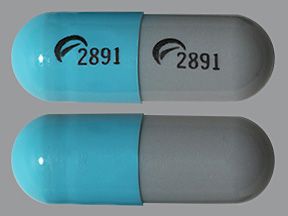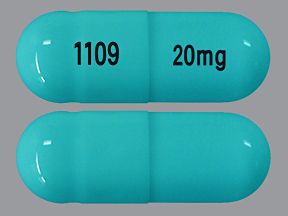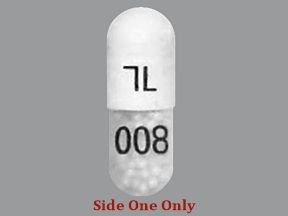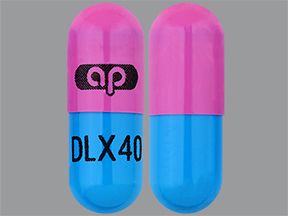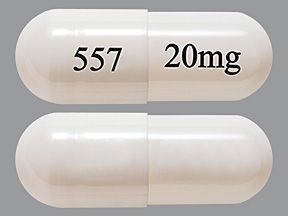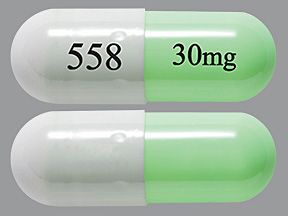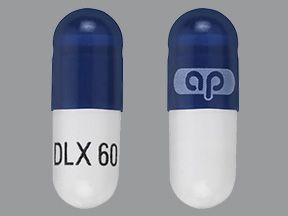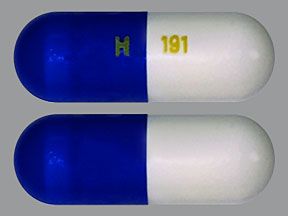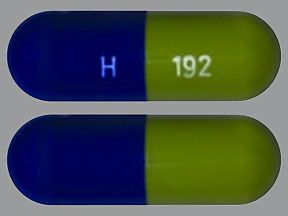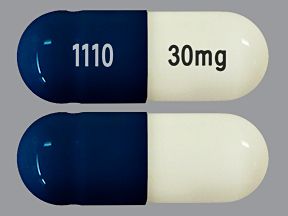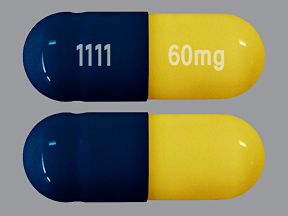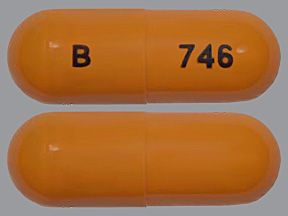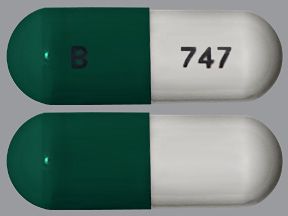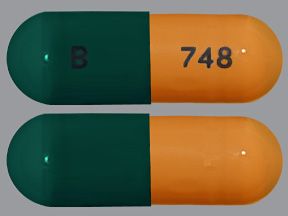If you have depression, anxiety, or pain, your doctor may prescribe duloxetine oral capsules for you.
It’s a prescription drug that’s used to treat:
- major depressive disorder, which is also called depression, in adults
- generalized anxiety disorder in adults and some children
- diabetic neuropathy in adults
- fibromyalgia in adults
- chronic (long lasting) musculoskeletal pain in adults
To learn more about these conditions and how duloxetine treats them, see the “What is duloxetine used for?” section below.
Duloxetine oral capsule basics
Duloxetine is classified as a selective norepinephrine reuptake inhibitor (SNRI).
You’ll take duloxetine oral capsules by swallowing them whole. The capsules are delayed-release, which means the drug gets released into your body a certain amount of time after you take the capsule.
Note: Duloxetine also comes as sprinkle capsules that you can open and pour onto food. Only the capsule form of duloxetine that’s swallowed whole is described in this article. If you’d like to learn about duloxetine’s other forms, talk with your doctor or pharmacist.
Duloxetine oral capsule brand-name versions
Duloxetine oral capsule is a generic drug. It’s also available in a brand-name version called Cymbalta.
Note: The sprinkle capsule form of duloxetine comes as a different brand-name drug. To learn about this other version of duloxetine, talk with your doctor or pharmacist.
Duloxetine oral capsules are a generic drug, which means they’re an exact copy of the active drug in a brand-name medication. The brand-name medication that duloxetine oral capsules are based on is called Cymbalta.
Generic drugs are thought to be as safe and effective as the brand-name drug they’re based on. In general, generics usually cost less than brand-name drugs.
If you’d like to know more about using Cymbalta instead of duloxetine oral capsules, talk with your doctor. View this Healthline article to learn more about the differences between generic and brand-name drugs.
Like most drugs, duloxetine oral capsules may cause mild or serious side effects. The lists below describe some of the more common side effects that duloxetine oral capsules may cause. These lists don’t include all possible side effects.
Keep in mind that side effects of a drug can depend on:
- your age
- other health conditions you have
- other medications you may be taking
Your doctor or pharmacist can tell you more about the potential side effects of duloxetine oral capsules. They can also suggest ways to help reduce side effects.
Mild side effects
Here’s a short list of some of the mild side effects that duloxetine oral capsules can cause. To learn about other mild side effects, talk with your doctor or pharmacist, or read the drug’s prescribing information.
Mild side effects of duloxetine oral capsules that have been reported include:
- constipation
- dizziness
- dry mouth
- excessive sweating
- fatigue (lack of energy)
- feeling drowsy (extremely sleepy)
- headache
- insomnia (trouble falling asleep or staying asleep)
- loss of appetite
- nausea
- sexual side effects*
- weight loss*
Mild side effects of many drugs may go away within a few days or a couple of weeks. But if they become bothersome, talk with your doctor or pharmacist.
* For more information on this side effect, see the “Side effect focus” section below.
Serious side effects
Serious side effects from duloxetine oral capsules can occur, but they aren’t common. If you have serious side effects from duloxetine oral capsules, call your doctor right away. But if you think you’re having a medical emergency, you should call 911 or your local emergency number.
Serious side effects of duloxetine oral capsules that have been reported include:
- bleeding or bruising more easily than usual
- eye problems, such as vision changes and pain, redness, or swelling around your eyes
- fainting
- high blood pressure
- liver problems that can lead to liver failure
- mania or hypomania (periods of extremely high energy level and excitement)
- orthostatic hypotension (a sudden drop in blood pressure that happens when you stand up too quickly)
- serotonin syndrome (high levels of serotonin, which is a chemical made by your body’s nerve cells)
- severe skin reaction, such as erythema multiforme and Stevens-Johnson syndrome
- seizures or convulsions (rigid or uncontrolled muscle movements)
- withdrawal symptoms, if you suddenly stop taking the drug
- falling
- low sodium level
- boxed warning: increased risk of suicidal thoughts and behaviors*
- allergic reaction*
Note: For falling and low sodium levels, the risk of these side effects in older people may be higher compared with younger people. To learn more about how your age impacts your risk for side effects from duloxetine oral capsules, talk with your doctor.
* For more information on this side effect, see the “Side effect focus” section below.
Side effect focus
Learn more about some of the side effects duloxetine oral capsules may cause.
Boxed warning
Duloxetine oral capsules have a
Increased risk of suicidal thoughts and behaviors. Duloxetine oral capsules have a boxed warning for suicidal thoughts and behaviors. This risk affects children, adolescents, and young adults who take medications such as duloxetine to treat depression.
The risk of this side effect is highest:
- in people younger than 24 years of age*
- during the first several months after the drug is started
- after any dosage changes
You should watch for the following symptoms while you’re taking duloxetine oral capsules:
- new or worsening anxiety
- new or worsening depression
- aggressive or violent behavior
- feelings of agitation, anger, irritability, or restlessness
- thoughts of hurting yourself
- trouble sleeping
* Keep in mind that duloxetine isn’t used to treat depression in children younger than 12 years of age.
What might help
Tell your doctor right away if you have any unusual changes in behaviors, feelings, moods, or thoughts, while you’re taking duloxetine. Your doctor may change your treatment plan or prescribe a drug other than duloxetine for you.
Help is out there
If you or someone you know is in crisis and considering suicide or self-harm, please seek support:
- Call or text the 988 Suicide and Crisis Lifeline at 988 or chat at 988lifeline.org. Caring counselors are available to listen and provide free and confidential support 24/7.
- Text HOME to the Crisis Text Line at 741741 to connect with a volunteer crisis counselor for free and confidential support 24/7.
- Not in the United States? Find a helpline in your country with Befrienders Worldwide.
- Call 911 or your local emergency services number if you feel safe to do so.
If you’re calling on behalf of someone else, stay with them until help arrives. You may remove weapons or substances that can cause harm if you can do so safely.
If you’re not in the same household, stay on the phone with them until help arrives.
Sexual side effects
You may have sexual side effects while you’re taking duloxetine oral capsules. These side effects were common in males* during studies of the drug. Sexual side effects from duloxetine were less common in females* during studies.
Sexual side effects that are common in males taking duloxetine include:
- erectile dysfunction (inability to get or keep an erection)
- trouble having an orgasm
- difficulty feeling sexually satisfied
Keep in mind that conditions such as major depressive disorder, which this drug is used to treat, can also cause sexual side effects. So it may be hard for you to tell if these side effects are caused by duloxetine or the condition you’re taking the drug to treat.
* In this article, we use the terms “male” and “female” to refer to someone’s sex assigned at birth. For information about the difference between sex and gender, see this article.
What might help
Tell your doctor if you have sexual side effects while you’re taking duloxetine oral capsules. Your doctor can help you figure out if the side effects are from duloxetine or the condition you’re treating.
Weight loss
You may have weight loss while you’re taking duloxetine oral capsules. This wasn’t a common side effect in adults during studies of the drug. But it was common in children* who took duloxetine to treat depression.
It’s important to note that depression, which duloxetine is used to treat, may cause weight gain. So you may have weight loss after you start taking duloxetine to treat depression. This could be a sign the drug is working to treat your condition, meaning weight loss may not be a side effect of the drug itself.
* Keep in mind that duloxetine isn’t used to treat depression in children younger than 12 years of age.
What might help
If you’re concerned about weight loss while you’re taking duloxetine oral capsules, talk with your doctor. They can suggest healthy ways to manage your weight.
Allergic reactionSome people may have an allergic reaction to duloxetine oral capsules. Allergic reactions to duloxetine have happened since the drug’s initial studies were done.
Symptoms of a mild allergic reaction can include:
- skin rash
- itchiness
- flushing (temporary warmth, redness, or deepening of skin color)
A more severe allergic reaction is rare but possible. Symptoms of a severe allergic reaction can include swelling under your skin, typically in your eyelids, lips, hands, or feet. They can also include swelling of your tongue, mouth, or throat, which can cause trouble breathing.
Call your doctor right away if you have an allergic reaction to duloxetine oral capsules. But if you think you’re having a medical emergency, call 911 or your local emergency number.
If you have depression, anxiety, or pain, your doctor may prescribe duloxetine for you.
It’s a prescription drug that’s used to treat:
- Major depressive disorder (MDD). For MDD, duloxetine oral capsules are used in adults. MDD is also called depression. With MDD, you have depression symptoms almost daily for at least 2 weeks. These symptoms can include:
- inability to concentrate or complete tasks
- loss of interest in activities you once enjoyed
- mood changes, such as irritability
- weight gain or weight loss
- Generalized anxiety disorder (GAD). For GAD, duloxetine oral capsules are used in adults and children ages 7 years and older. With GAD, you have anxiety symptoms almost daily for at least 6 months. These symptoms can include:
- restlessness
- trouble concentrating
- trouble falling asleep
- fatigue (lack of energy)
- feelings of worry
- Diabetic neuropathy. For diabetic neuropathy, duloxetine oral capsules are used in adults. This condition is a type of nerve pain that happens in people with diabetes. It’s caused by having a high blood sugar level over a long period of time.
- Fibromyalgia. For fibromyalgia, duloxetine oral capsules are used in adults. This condition is a type of muscle and bone pain that also causes other symptoms. Other symptoms of fibromyalgia include fatigue (lack of energy), trouble sleeping, and problems with memory.
- Chronic musculoskeletal pain. For chronic (long lasting) musculoskeletal pain, duloxetine oral capsules are used in adults. This condition is a type of muscle and bone pain that lasts for several months.
Duloxetine belongs to a group of drugs called selective norepinephrine reuptake inhibitors (SNRIs). It works by increasing the levels of brain chemicals called serotonin and norepinephrine. This helps to relieve pain and improve your emotions and mood.
Your doctor will recommend the dosage of duloxetine oral capsules that’s right for you. Below are commonly used dosages, but always take the dosage your doctor prescribes.
Form and strengths
Duloxetine comes as a delayed-release oral capsule that you swallow. Delayed release means that the drug gets released into your body a certain amount of time after you take the capsule.
Duloxetine oral capsules come in the following strengths:
- 20 milligrams (mg)
- 30 mg
- 40 mg
- 60 mg
Note: Duloxetine also comes as sprinkle capsules that you can open and pour onto food. Only the capsule form of duloxetine that’s swallowed whole is described in this article. If you’d like to learn about duloxetine’s other forms, talk with your doctor or pharmacist.
Recommended dosages
You’ll take duloxetine oral capsules once or twice per day.
Your dosage of duloxetine oral capsules will vary depending on the condition you’re using the drug to treat. Your dosage will also be based on:
- your age
- how well the drug is treating your condition
- other health conditions you may have
For major depressive disorder and generalized anxiety disorder, the maximum daily dose of duloxetine oral capsules in 120 mg. For diabetic neuropathy, fibromyalgia, and musculoskeletal pain, the maximum daily dose is 60 mg.
To learn more about these conditions and how duloxetine treats them, see the “What is duloxetine used for?” section above.
To learn more about duloxetine’s dosage, see this article.
Questions about duloxetine oral capsule’s dosage
Below are some common questions about duloxetine oral capsule’s dosage.
- What if I miss a dose of duloxetine oral capsules? If you miss a dose of duloxetine, take your missed dose as soon as you remember. But if it’s almost time for your next dose, just skip your missed dose. Then take your next dose at the regular time. Don’t take two doses of duloxetine to make up for a missed dose. Doing so can increase your risk for side effects from the drug. If you aren’t sure whether to take a dose or skip it, ask your doctor or pharmacist.
- Will I need to use duloxetine oral capsules long term? If duloxetine is working for you and isn’t causing bothersome side effects, you’ll likely use the drug long term. Talk with your doctor about how long you’ll need to take this medication.
- How long do duloxetine oral capsules take to work? After you start using duloxetine, it will take several weeks for your symptoms to ease. Talk with your doctor about when you can expect your symptoms to ease.
Your doctor will explain how you should take duloxetine oral capsules. They will also explain how much to take and how often. Be sure to follow your doctor’s instructions. Below are commonly used dosages, but always take the dosage your doctor prescribes.
Taking duloxetine oral capsule
You’ll take duloxetine oral capsules by swallowing them whole.
Questions about taking duloxetine oral capsule
Here’s a list of common questions related to taking duloxetine oral capsules.
- Can duloxetine oral capsules be chewed, crushed, or split? No, duloxetine oral capsules shouldn’t be chewed, crushed, or split. You’ll need to swallow the capsules whole. Don’t open the capsules and sprinkle their contents onto food or mix them with liquids. If you have trouble swallowing duloxetine capsules whole, talk with your doctor. They may prescribe a different form of duloxetine that you can sprinkle onto food.
- Should I take duloxetine oral capsules with food? You can take duloxetine oral capsules with or without food.
Questions for your doctorYou may have questions about duloxetine oral capsules and your treatment plan. It’s important to discuss all your concerns with your doctor.
Here are a few tips that might help guide your discussion:
- Before your appointment, write down questions such as:
- How will duloxetine oral capsules affect my body, mood, or lifestyle?
- Bring someone with you to your appointment if doing so will help you feel more comfortable.
- If you don’t understand something related to your condition or treatment, ask your doctor to explain it to you.
Remember, your doctor and other healthcare professionals are available to help you. And they want you to get the best care possible. So don’t be afraid to ask questions or offer feedback on your treatment.
Find answers to some commonly asked questions about duloxetine oral capsules.
Does stopping duloxetine cause withdrawal symptoms? How long do withdrawal symptoms last?
Yes, suddenly stopping duloxetine oral capsules can cause withdrawal symptoms.
These symptoms can appear within hours or days of stopping the drug. And they might last for several weeks. In rare cases, withdrawal symptoms from duloxetine may last for several months.
Symptoms of withdrawal from duloxetine can include:
- anxiety
- diarrhea, nausea, or vomiting
- dizziness
- excessive sweating
- fatigue (lack of energy)
- headache
- insomnia (trouble falling asleep or staying asleep)
- irritability
- paresthesia (temporary burning, numbness, or prickling sensation in your arms, feet, hands, or legs)
You shouldn’t stop taking duloxetine unless your doctor says it’s safe to do so. When it’s time for you to stop taking the drug, your doctor will slowly lower your dosage over time. This helps reduce your risk for withdrawal symptoms.
Can duloxetine cause weight gain?
Weight gain wasn’t a side effect of duloxetine oral capsules reported in studies.
Keep in mind that duloxetine is used to treat depression, which can cause weight gain or weight loss. So weight changes may happen while you’re taking duloxetine. But it could be due to your depression getting better and not because of the drug itself.
If you’re concerned about weight gain while you’re taking duloxetine, talk with your doctor. They can suggest healthy ways to manage your weight.
Is duloxetine a controlled substance? Does it make you feel ‘high’?
No, duloxetine isn’t a controlled substance. It isn’t likely that you’ll feel “high” (euphoric) with duloxetine.
Controlled substances are medications that are closely regulated by the government. This is because the medications carry a risk of misuse or physical dependence. (With misuse, a drug is taken in a way other than how it was prescribed. With dependence, your body gets used to a drug and needs it in order for you to feel like usual.)
These effects aren’t known to happen with duloxetine. Your doctor will still monitor you to make sure it’s safe for you to keep taking the drug.
Feeling “high” wasn’t a side effect reported in studies of duloxetine. But feeling high may be a symptom of mania or hypomania. (Mania and hypomania are periods of extremely high energy and excitement.) These are possible side effects of duloxetine.
If you’re concerned about how you’ll feel while taking duloxetine, talk with your doctor. They’ll monitor you closely for symptoms of mania or hypomania.
How does duloxetine work? What’s its half-life?
Duloxetine belongs to a group of drugs called selective norepinephrine reuptake inhibitors (SNRIs).
It works by increasing levels of brain chemicals called serotonin and norepinephrine. This helps to relieve pain and improve your emotions and mood.
The way a drug works in your body is called its “mechanism of action.”
A drug’s half-life is the time it takes for the amount of drug in your body to decrease by half. The half-life of duloxetine is about 12 hours. This means it takes about 12 hours for your body to get rid of half of a dose of duloxetine.
Is duloxetine an SNRI, SSRI, or narcotic?
Duloxetine belongs to a group of drugs called selective norepinephrine reuptake inhibitors (SNRIs). The drug isn’t a selective serotonin reuptake inhibitor (SSRI) or a narcotic.
Like SNRIs, SSRIs are a group of drugs used to treat depression and other mental health conditions. Examples of SSRIs include sertraline (Zoloft) and citalopram (Celexa).
“Narcotic” is a term that’s used to describe opioids. Examples of narcotics include:
- illegal opioids, such as heroin
- prescription opioids, such as fentanyl (Actiq, Duragesic) and oxycodone (Oxaydo, Roxicodone)
How does duloxetine compare with alternative drugs such as fluoxetine, venlafaxine, and gabapentin?
Both duloxetine and venlafaxine (Effexor XR) belong to a group of drugs called selective norepinephrine reuptake inhibitors (SNRIs).
Fluoxetine (Prozac) belongs to a group of drugs called selective serotonin reuptake inhibitors (SSRIs).
SNRIs and SSRIs are both used to treat mental health conditions such as depression and anxiety.
Gabapentin (Neurontin) belongs to a group of drugs called gabapentinoids. Both duloxetine and gabapentin are used to treat certain types of nerve pain.
If you have questions about how duloxetine, fluoxetine, venlafaxine, and gabapentin are alike and different, talk with your doctor or pharmacist. They can recommend the treatment option that’s best for your condition.
Taking medications, vaccines, foods, and other things with a certain drug can affect how the drug works. These effects are called interactions.
Before taking duloxetine oral capsules, be sure to tell your doctor about all medications you take, including prescription and over-the-counter types. Also describe any vitamins, herbs, or supplements you use. Your doctor or pharmacist can tell you about any interactions these items may cause with duloxetine oral capsules.
For information about drug-condition interactions, see “Other warnings” in the “What should be considered before taking duloxetine?” section below.
Interactions with drugs or supplements
Duloxetine oral capsule can interact with several types of drugs, including:
- drugs broken down in your body by the enzymes (types of proteins) CYP1A2, CYP2D6, CYP2C9, CYP2C19, and CYP3A, such as:
- the antibiotic ciprofloxacin
- the acid reflux drug cimetidine
- the abnormal heart rhythm drug quinidine
- antidepressant drugs other than duloxetine, including:
- tricyclic antidepressants (TCAs), such as amitriptyline
- selective serotonin reuptake inhibitors (SSRIs), such as sertraline (Zoloft)
- selective norepinephrine reuptake inhibitors (SNRIs), such as venlafaxine (Effexor XR) and fluoxetine (Prozac)
- monoamine oxidase inhibitors (MAOIs)*, such as selegiline (Eldepryl)
- migraine drugs called triptans, such as sumatriptan (Imitrex)
- attention deficit hyperactivity (ADHD) drugs called amphetamines
- the following pain medications:
- tramadol (Ultram)
- fentanyl (Duragesic)
- nonsteroidal anti-inflammatory drugs (NSAIDs), such as ibuprofen (Advil) and naproxen (Aleve)
- the asthma drug theophylline
- the mood stabilizer drug lithium (Lithobid)
- the anxiety drug buspirone
- the blood thinner drug warfarin (Jantoven)
- the schizophrenia drug thioridazine*
- the herbal supplements tryptophan and St. John’s wort
This list does not contain all types of drugs that may interact with duloxetine oral capsules. Your doctor or pharmacist can tell you more about these interactions and any others that may occur with use of duloxetine oral capsules.
* Because of this interaction, you should not take duloxetine oral capsules if you’re taking these medications.
Some important things to discuss with your doctor when considering treatment with duloxetine oral capsules include:
- your overall health
- other medications you take
- any medical conditions you may have
These considerations and others are described in more detail below.
Boxed warning
Duloxetine oral capsules have a boxed warning about an increased risk of suicidal thoughts and behaviors. This risk affects children, adolescents, and young adults who take medications such as duloxetine to treat depression.
A
For more information about this warning, see the “What are duloxetine’s side effects?” section above.
Other warnings
Duloxetine oral capsules may not be right for you if you have certain medical conditions or other factors that affect your health. Talk with your doctor about your health history before you take them. Factors to consider include those in the list below.
- Bipolar disorder. Duloxetine oral capsules may cause mania or hypomania. (These are periods of extremely high energy levels and excitement that may be related to bipolar disorder.) Before taking duloxetine, tell your doctor if you have bipolar disorder. They may prescribe a drug other than duloxetine for you.
- Bleeding problems. Duloxetine oral capsules may increase your risk for bleeding. If you already have bleeding problems, your risk may be even higher. Before taking duloxetine, tell your doctor if you have any bleeding problems.
- Delayed stomach emptying. Duloxetine oral capsules are covered in a coating that protects the drug from your stomach acid. If you have a condition that delays emptying of the contents of your stomach, your body could break down the capsule’s coating. This could make the drug less effective for your condition. Before taking duloxetine, tell your doctor if you have a condition that delays your stomach from emptying.
- Diabetes. Tell your doctor if you have diabetes before you start taking duloxetine oral capsules. The drug can make it hard for you to manage your blood sugar level. Your doctor may monitor your blood sugar levels more closely than usual if you take duloxetine.
- Glaucoma. Before starting duloxetine oral capsules, tell your doctor if you have glaucoma. Duloxetine can raise your risk for having a glaucoma attack. This is a sudden worsening of glaucoma that causes blurry vision and severe eye pain. Call 911 or your local emergency number right away if you have these symptoms while you’re taking duloxetine.
- Heart problems. If you have heart problems, such as high blood pressure, tell your doctor before starting duloxetine oral capsules. Duloxetine may increase your blood pressure. So if you already have high blood pressure or other heart problems, you may not be able to take this drug.
- Liver or kidney problems. If you have liver or kidney problems, your body may have trouble clearing duloxetine from your system. This could cause duloxetine to build up in your body, increasing your risk for side effects from it. Before you take duloxetine oral capsules, tell your doctor about any liver or kidney problems you have.
- Low sodium level in your blood. Duloxetine oral capsules can cause a low level of sodium in your blood. If you already have a low sodium level, talk with your doctor before starting duloxetine.
- Seizures or convulsions. Duloxetine oral capsules may cause seizures or convulsions (rigid or uncontrolled muscle movements). If you already have these conditions before taking the drug, your risk for seizures or convulsions with duloxetine may be even higher. Tell your doctor about any seizures or convulsions before you take duloxetine.
- Allergic reaction. If you’ve had an allergic reaction to duloxetine oral capsules or any of their ingredients, you shouldn’t take the capsules. Ask your doctor what other medications are better options for you.
Duloxetine and alcohol
You shouldn’t drink alcohol while you’re taking duloxetine oral capsules. Doing so can cause liver problems, such as liver failure.
If you drink alcohol, talk with your doctor before starting duloxetine.
Pregnancy and breastfeeding
It may not be safe to take duloxetine oral capsules during pregnancy. Taking the drug during the month before you give birth can increase your risk for severe bleeding after delivery.
Additionally, duloxetine can pass into breast milk. If you’re breastfeeding while taking this drug, watch the child for these side effects:
- drowsiness
- poor feeding
- trouble gaining weight
Talk with your doctor about the risks and benefits of taking duloxetine while you’re pregnant or breastfeeding.
Do not take more duloxetine oral capsules than your doctor prescribes. Using more than this can lead to serious side effects.
Symptoms of overdose
Symptoms caused by an overdose of duloxetine can include:
- feeling drowsy (extremely sleepy)
- serotonin syndrome (high levels of serotonin, which is a chemical made by your body’s nerve cells)
- seizures
- fainting
- fast heart rate
- low or high blood pressure
- vomiting
- coma
What to do in case you take too much duloxetine
Call your doctor if you think you’ve taken too many duloxetine oral capsules. You can also call 800-222-1222 to reach the American Association of Poison Control Centers, or use its online resource. But if you have severe symptoms, immediately call 911 (or your local emergency number) or go to the nearest emergency room.
Costs of prescription drugs can vary depending on many factors. These factors include what your insurance plan covers and which pharmacy you use.
Financial assistance to help you pay for duloxetine oral capsules may be available. Medicine Assistance Tool and NeedyMeds are two websites that provide resources to help reduce the cost of duloxetine oral capsules.
These websites also offer tools to help you find low cost healthcare and certain educational resources. To learn more, visit their websites.
If you have questions about using duloxetine oral capsules for depression, anxiety, or pain, talk with your doctor. They can recommend if this drug is right for your condition.
You may also want to ask your doctor about other treatment options for your condition. Below are a few articles you may find helpful:
- How Can I Get Help for Depression?
- What Medications Help Treat Depression?
- Drugs to Treat Anxiety Disorder
- Everything You Should Know About Diabetic Neuropathy
- How to Treat Fibromyalgia
- Musculoskeletal Pain
Also, here are a few questions you can ask your doctor about duloxetine oral capsules:
- Do I have a higher risk for certain side effects with duloxetine?
- Should I take other medications together with duloxetine to treat my condition?
- Does duloxetine interact with any medications I’m taking?
- Will my depression, anxiety, or pain come back if I stop taking duloxetine?
- How is duloxetine different from other drugs that treat depression, anxiety, or pain?
To learn more about duloxetine, see this article:
To get information on different conditions and tips for improving your health, subscribe to any of Healthline’s newsletters. You may also want to check out the online communities at Bezzy. It’s a place where people with certain conditions can find support and connect with others.
Q:
My doctor said duloxetine oral capsules can cause serious skin reactions. What are possible symptoms of this side effect that I should watch for?
AnonymousA:
It’s possible for duloxetine to cause serious skin reactions, but this is very rare.
Serious skin reactions due to duloxetine can cause:
You should tell your doctor immediately or go to the nearest emergency room if you notice any of these symptoms while you’re taking duloxetine. If your symptoms feel life threatening, call 911 or your local emergency number.
Dena Westphalen, PharmDAnswers represent the opinions of our medical experts. All content is strictly informational and should not be considered medical advice.Disclaimer: Healthline has made every effort to make certain that all information is factually correct, comprehensive, and up to date. However, this article should not be used as a substitute for the knowledge and expertise of a licensed healthcare professional. You should always consult your doctor or another healthcare professional before taking any medication. The drug information contained herein is subject to change and is not intended to cover all possible uses, directions, precautions, warnings, drug interactions, allergic reactions, or adverse effects. The absence of warnings or other information for a given drug does not indicate that the drug or drug combination is safe, effective, or appropriate for all patients or all specific uses.





